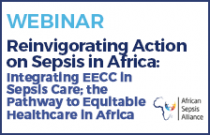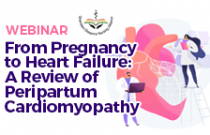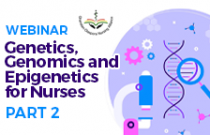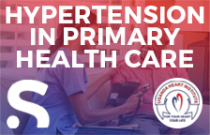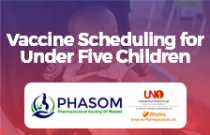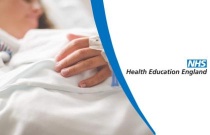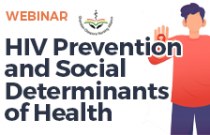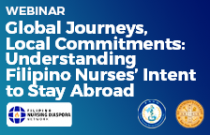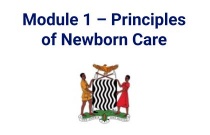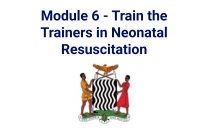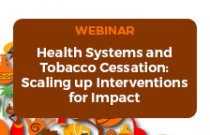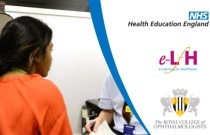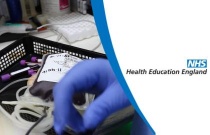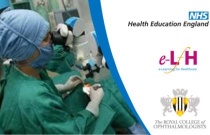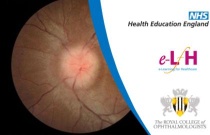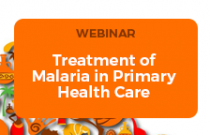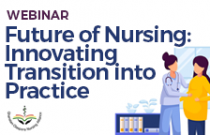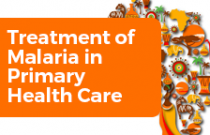Reinvigorating Action on Sepsis in Africa: Integrating EECC in Sepsis Care; the Pathway to Equitable Healthcare in Africa.
Dr. Halima Salisu-Kabara
This is to mark the World Sepsis Day, 13th September, 2025! Every year we celebrate this event doing various activities, World over. The WHA Resolution (70.6) on Sepsis was passed in May 2017, and yet Sepsis awareness remains low among Policymakers, healthcare professionals, the general public, and other public - and private s....
Empowering Health Professionals Through Nutrition Education
Dr. Zulfiqar A. Bhutta
The webinar will explore Pakistan’s key nutrition challenges and highlight the need for multisectoral interventions to combat these challenges. Participants will gain insights into the vital role of health professionals in delivering integrated nutrition care and learn practical approaches for embedding gender and climate consid....
From Pregnancy to Heart Failure: A Review of Peripartum Cardiomyopathy
Dr. Nancy Comello DNP, CNM
This presentation is a review of pregnancy and postpartum cardiac pathophysiology, including definitions, incidence, and risk factors. This summary will Identify the pathophysiology, signs and symptoms, diagnostic testing, and PPCM management. In addition, the morbidity and mortality outcomes related to peripartum cardiomyopathy....
Genetics, Genomics and Epigenetics for Nurses Part 2
Associate Professor Omanand Koul
Nurses need to know how our genes and inherited traits manifest themselves and affect our physiology. An understanding of gene function helps in understanding new therapeutic approaches for diseases they see in patients. The knowledge about inheritance patterns of single gene and multigene disorders greatly adds to their ability....
Good Storage Practices in Pharmacy
Mr Enock Foster
Good storage practices are essential component of supply chain management. This webinar is aimed to uncover the principles and importance of good storage practices.
Erectile Dysfunction
Okello Francis, BCMCH,PGCMH,PGCDNH, PGDCRM, PGCCGP, IDF
CPD for all Healthcare workers on understanding erectile dysfunction
Hypertension in Primary Health Care
Dr. Elijah Rutahaba MBChB MMED
This training is designed for primary health care workers and managers and focuses on the use of a standardized protocol and other clinical management tools, such as patient cards, registers, and reporting templates. Interactive lectures, case studies, and activities drawn on national cardiovascular disease/hypertension guidelin....
Vaccine Scheduling for Under Five Children
Mr. Willie Chiumbuzo
This CPD session seeks to equip pharmacists, pharmacy technicians, immunization logisticians, nurses, and other public health professionals with updated and practical knowledge on the principles, timing, sequence, and rationale of childhood immunization schedules. The emphasis will be on the under-five population.
Blood Transfusion Programme: SHOT Human Factors & Ergonomics (HFE)
NHS, eIntegrity, elfh
The Human Factors and Ergonomics (HFE) module has been developed by SHOT to give learners an overview of HFE and relate these to transfusion safety. It describes definitions and frameworks in addition to models that have been adapted by SHOT to support an organisations HFE work relating to systems and incident investigation in t....
HIV Prevention and Social Determinants of Health: Lessons from Research and Practice
Dr. Gloria Aidoo-Frimpong
This webinar will explore how social determinants, including stigma, cultural norms, migration, and healthcare access, shape HIV prevention in Ghana and globally. Drawing from fieldwork and community partnerships, Dr. Aidoo-Frimpong will highlight barriers and facilitators to uptake PrEP, HIV self-testing, and emerging long-acti....
Global Journeys, Local Commitments: Understanding Filipino Nurses’ Intent to Stay Abroad
Dr. Blaise Nieve
This webinar explores the current state of Filipino nurse migration, examining the factors that drive Filipino nurses to pursue opportunities overseas and the challenges they encounter in adapting to new health systems. Drawing on recent research, including a path analysis study on Filipino nurses’ intent to stay in the United K....
Module 1 – Principles of Newborn Care
Dr. Kunda Mutesu Kapembwa, Dr. Manoj Matthews, Dr. Sylvia Machona, Dr. Gae Mundundu, Dr.Jean Desire B Kabamba, Mercy Chibende, Tendai Mungalu, Bertha Kaunda Kaluba, Dr. Tsasa Ndjamwema, Ms. Giveness N. Mwangala, Ms. Monde Muyangana, Mwila Sekeseke- Shamal
In this module, the participant is expected to learn the theoretical and practical principles of newborn care. It is important to establish the basic principles that guide newborn care as they form the basis for a successful neonatal resuscitation.
Module 6 - Train the Trainers in Neonatal Resuscitation
Dr. Kunda Mutesu Kapembwa, Dr. Manoj Matthews, Dr. Sylvia Machona, Dr. Gae Mundundu, Dr.Jean Desire B Kabamba, Mercy Chibende, Tendai Mungalu, Bertha Kaunda Kaluba, Dr. Tsasa Ndjamwema, Ms. Giveness N. Mwangala, Ms. Monde Muyangana, Mwila Sekeseke- Shamal
This module trains participants to be trainers in neonatal resuscitation using the Zambian Neonatal Resuscitation algorithm.
Red Eye Case Study 1
Rosemary Robinson
This session works through a scenario concerning a patient with a painful red eye.
test scorm - stride bp
Mr WCEA Administrator
Course Description* Please add a course description with a minimum of 20 characters.
WEBINAR: Health systems and Tobacco cessation: Scaling up interventions for impact
Dr. Leon Ogoti
Discussing how healthcare workers and public health advocates can champion for the introduction of tobacco cessation and allied services from the primary healthcare level and why this is necessary.
Medical Assessment of Ptosis
James Acheson
This session describes the diagnosis classification of ptosis, helping you to identify whether a ptosis is mechanical, aponeurotic, myopathic or neurological. You will learn how to take an appropriate history and to perform an examination and to investigate for serious underlying causes in order to refer for further investigatio....
Blood Transfusion Programme: Good Manufacturing Practice
NHS, eIntegrity, elfh
This module is aimed at laboratory staff and other staff groups involved in the transfusion pathway, up until the administration of a blood component. It can also be used as a source of information to gain an understanding of GMP in relation to blood transfusion.
Trabeculectomy: Indications and Technique
Jeremy Diamond
This session describes why, when and how trabeculectomy surgery is performed, and then discusses whether trabeculectomy is still the gold standard for surgery.
Optic Disk Swelling
Wendy Adams
This session covers the causes of optic disc swelling and how to investigate the patient with optic disc swelling.
WEBINAR: Treatment of Malaria in Primary Health Care
Dr David Matthew
Malaria is a life-threatening disease caused by parasites of the genus Plasmodium. Transmission: Spread through the bites of infected Anopheles mosquitoes. Impact: Affects millions each year, primarily in tropical and subtropical regions.
Future of Nursing: Innovating transition into Practice
Hiyam Nadel
Emphasizing on the need for frontline nurses to innovate while creating an impactful solutions tailored to everyday challenges
Treatment of Malaria in Primary Health Care
Dr David Matthew
Malaria is a life-threatening disease caused by parasites of the genus Plasmodium. Transmission: Spread through the bites of infected Anopheles mosquitoes. Impact: Affects millions each year, primarily in tropical and subtropical regions.
